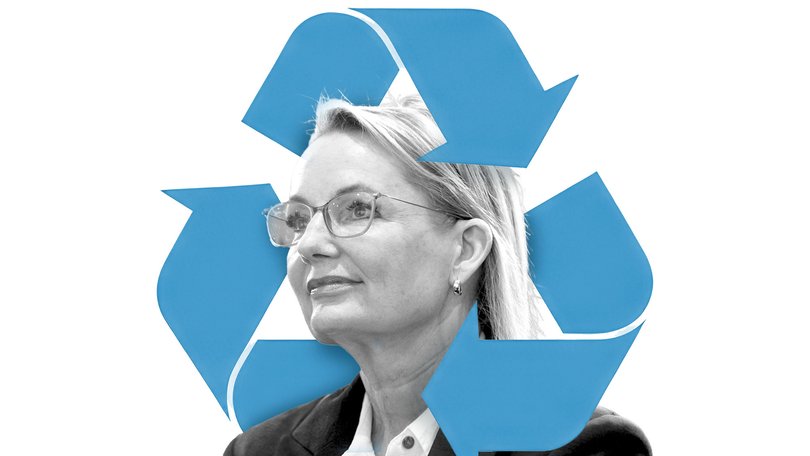MARK RILEY: Net zero commitment issues are causing Sussan Ley a world of pain
MARK RILEY: Sussan Ley has found herself caught in a self-perpetuating cycle of manufactured instability that, if not broken, will eventually bring on a spill and drag down her leadership.

Two little words are causing Sussan Ley a big problem.
They are “net” and “zero”.
At a special party room meeting next week she will try to get the disparate tribes of the Liberal Party onto the same page with a policy that essentially supports net zero without mentioning either of those words.
Sign up to The Nightly's newsletters.
Get the first look at the digital newspaper, curated daily stories and breaking headlines delivered to your inbox.
By continuing you agree to our Terms and Privacy Policy.Securing that compromise is now essential.
Ley has found herself caught in a self-perpetuating cycle of manufactured instability that, if not broken, will eventually bring on a spill and drag down her leadership.
The process is unsophisticated. But it is also effective.
And we’ve seen it before. Many times. Always on energy policy.
The leader’s opponents create the impression of internal conflict by making public statements they know are counter to the party’s policy position.
They then fuel that impression by trotting up to media doorstops knowing they’ll be asked about their dissenting views.
Very soon, the conflicting positions become part of a larger narrative of internal division that raises questions about the party’s leadership.
The same dissidents then make themselves available to the media to be asked about that.
Talking about instability brings more questions about instability, which fuels analysis about instability (like this one!).
Meanwhile, pollsters go into the field to ask those voters who they think makes the better party of government.
No one should be shocked when the results reveal an historic plunge in support for the party fighting amongst itself, as Newspoll did this week for the Coalition.
Then, the first question the leader inevitably gets at ensuing media conferences is about their own leadership.
They are caught in a continuous, destructive cycle of self-justification — on the back foot, defending themselves and their leadership at every turn.
The more they do that, the less voters are convinced of their effectiveness.
The pollsters go back into the field. The impression of instability is now real and deep. The party’s polling hits new depths. Questions about the leader’s future hit new heights. And so it goes. On and on and on.
It’s a crude and brutal tactic.
And it works.
Energy Minister Chris Bowen reminded the Parliament this week of Bob Hawke’s adage that “if you can’t govern yourself, you can’t govern the country”.
The Liberals most-successful prime minister of the past 50 years, John Howard, had his own pithy version of that: “Disunity is death”.
Both are right.
And the dissidents know it.
There is only one way to break that cycle. It is to find a policy compromise. That is what Ley is trying to do now. There is a path. And the shattered dynamics of the Liberal Party after the disastrous 2022 and 2025 election defeats help her.
The Liberal factions are no longer cohesive. Indeed, there are factions emerging within the factions. In days gone by, big policy disputes like this would be settled by bringing Mathias Cormann forward for the right and Christopher Pyne for the moderates and allowing them to work out an agreed position.
Now, there are at least three sub-factions of the right and no broadly accepted leader of the moderates.
In that unstructured landscape, Ley is left to find a compromise that all sides can live with.
She can’t adopt the Nationals’ uncodified position of doing no more than the international average on emissions reduction. That won’t wash in urban electorates.
But there is one way she can maintain the Liberal Party’s effective commitment to net zero without having to mention it.
The Liberals could fully commit to honouring the objectives of the Paris Agreement on Climate Change.
But doesn’t that mean they’d also be committing to net zero by 2050?
Well, no. The Paris Agreement doesn’t place any date on net zero. Rather, it commits signatories to the more nebulous ambition of achieving “a balance between carbon emissions and removals by the second half of the century”.
It sounds like splitting hairs, but it might allow the Liberals some credibility on climate as it tries to win back some of those city seats it’s lost to the teals.
And it might help Ley survive as leader by replacing the two words “net” and zero” with the two words “Paris” and “Agreement”.

